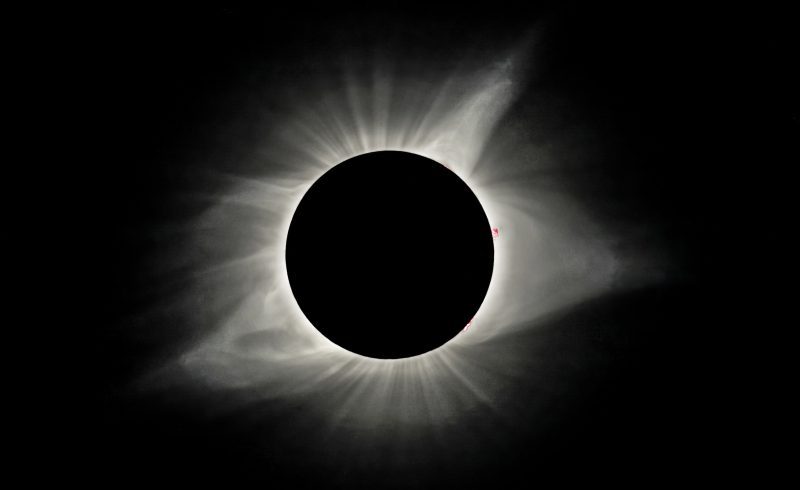(WJET/WFXP) — The complete solar eclipse that will go through parts of the country Monday is just one of many complete solar eclipses that have been seen throughout history. While we have a good understanding of how and why eclipses happen, it was not always this way. From folklore to conspiracy theories, here’s a breakdown of some of the history and myths of a total solar eclipse.
As per NASA, one of the earliest records of a total solar eclipse goes back to 1375 BCE. The Ugarit Eclipse has been documented in Early Mesopotamian Records, which read:
“On the day of the new moon, in the month of Hiyar, the Sun was put to shame, and went down in the daytime, with Mars in attendance.“
After that time, you can find mentions of total solar eclipses in the Bible, Greek writings and various other forms of media throughout history.
As per The Old Farmer’s Almanac, during ancient times, the eclipse was an event that would create fear. Some people believed their god was angry or saddened, while some myths described a beast trying to destroy the sun.
For example, the Chippewa people, who were one of the largest groups of American Indians in North America, shot flaming arrows at the sun in the hopes of lighting it again. There were tribes in Peru who did the same but for a different reason; they were attempting to fight off the beast that was trying to destroy the sun.
The Japanese believed that during the eclipse, poison would drop from the sky, so they covered their walls to protect themselves. And if you happened to be in Transylvania, the belief was that the eclipse would cause a plague.
Even now, people still hold fears about the eclipse, as was evident during the eclipse in 1995 when soldiers in Cambodia aimed their guns toward the sun and fired in the hopes of scaring away the mythic dragon from the sky. It was reported that the only casualties were from the bullets.
… We often see ideas of eclipses as being a pursuit or a consumption of the sun by some kind of monstrous being or animal. So we can see, for instance, in a lot of Chinese folklore, a pursuit of the sun by sky dogs. We can see in other places different kinds of monstrous beings, whether they be sort of deities or animals. In the Choctaw tradition, there’s an idea that the sun is being gnawed on by a giant squirrel. So how can we explain the fact that the sun is gradually being eclipsed by the moon, is that it actually appears like it’s being gnawed on a little bit, little tooth marks one at a time and you’d respond to that by trying to scare the squirrel away.
Jasper Waugh-Quasebarth, The Ohio State University
Fear of the eclipse affecting pregnancies was also a prevalent concern. At one point, it was believed that the eclipse could cause pregnancy issues, including blindness, cleft lips and birthmarks. Some of those superstitions continue today, and sometimes pregnant women are warned to stay inside, not eat and not carry sharp objects.
People now know better. Nowadays, the only health warning associated with the eclipse in most cases is to protect your eyes. Looking at the sun without proper protection or even improper protection can lead to permanent retina damage and even blindness that cannot be repaired.
In addition, with such a rare event comes many conspiracy theories that pop up online. One such theory is that the eclipse will cause major thunderstorms along the line of totality.
Harold Brooks, senior scientist with the NOAA National Severe Storms Laboratory, said that given the speed of the moon’s shadow, it would not have the time to have any real effect on the weather, more specifically with severe storms. The biggest effect that will be seen as a result of the eclipse is a temperature drop of a few degrees and an increase in the wind.
Other conspiracy theories spreading online claim that the eclipse could cause an earthquake. While the moon creates very subtle gravitational tides, it is nowhere near strong enough to trigger any seismic events. Additionally, since the moon’s cycles affect this force, the moon simply crossing in front of the sun has no effect at all.
However, the total solar eclipse in 2024 will be a rare event that will be remembered for a lifetime by millions of Americans.









